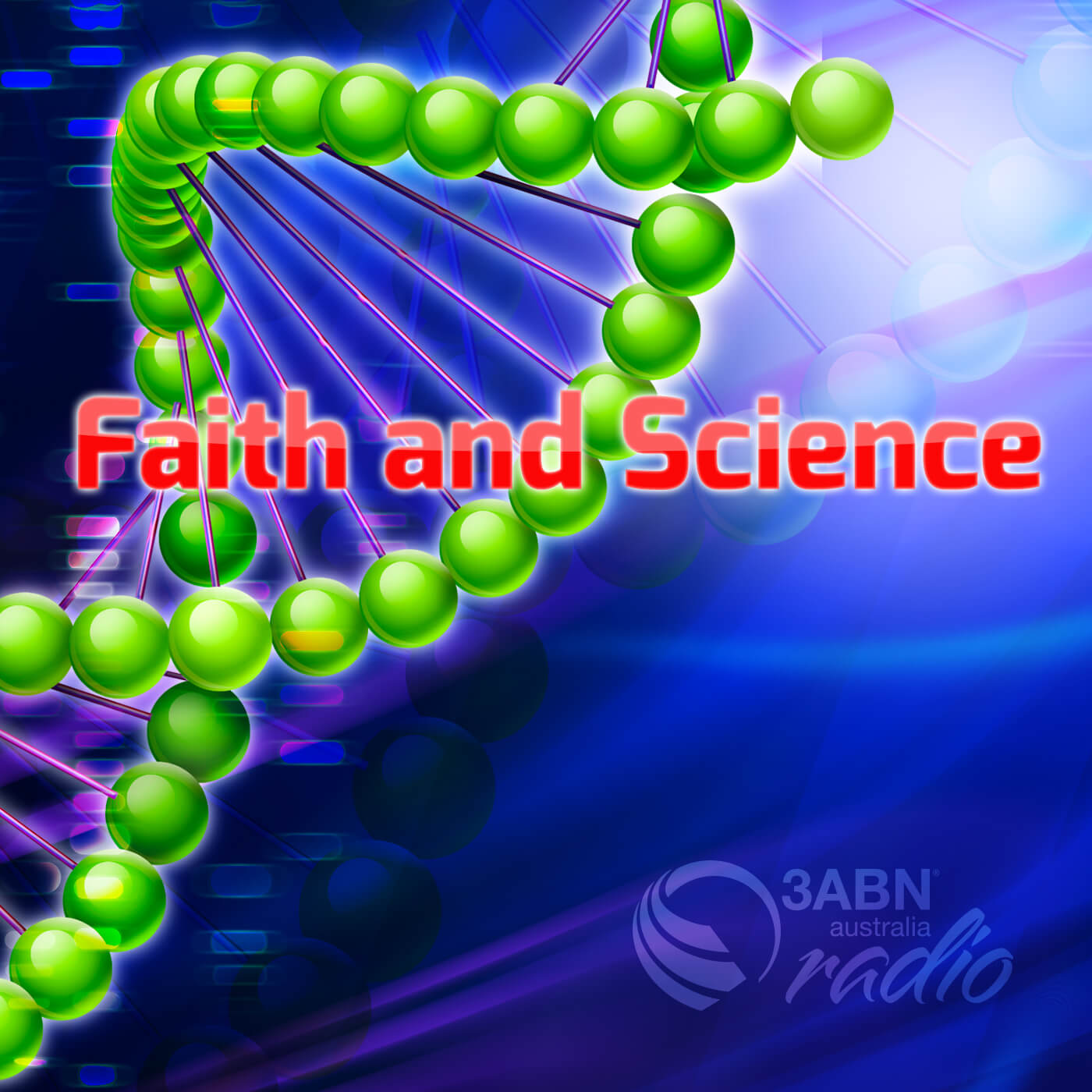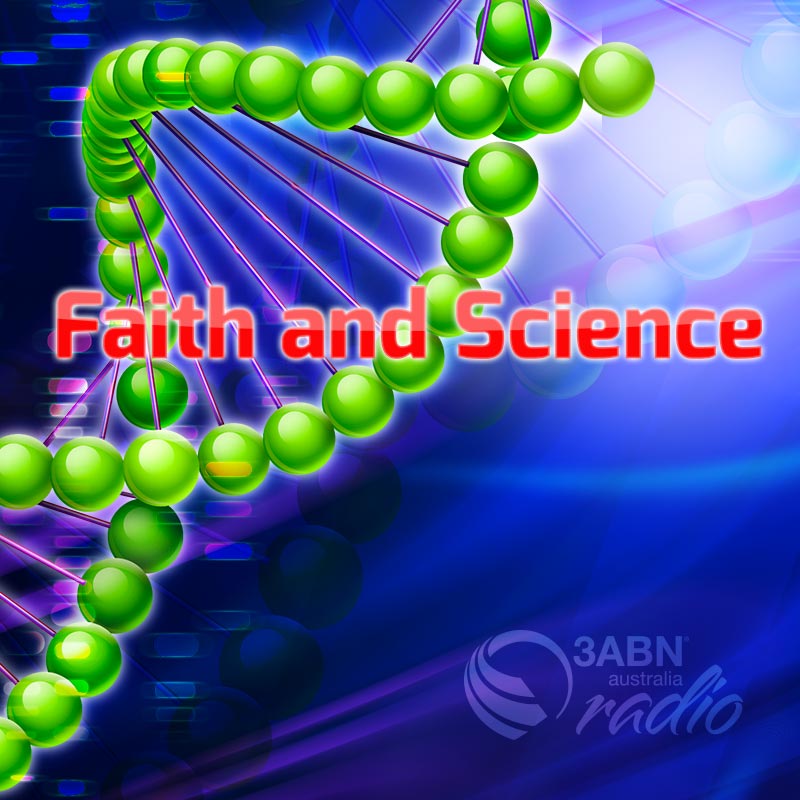Episode Transcript
Welcome to faith and science. I'm doctor John Ashton. One of the things that really frustrates me today is this belief and practise in education that the Bible needs to be kept out of the classroom.
And particularly in science studies, there's no room for the biblical account in science in particular. And this is really, really strange, because few people, I think, realise that science has its roots in Christianity. If it wasn't for Christianity, we probably wouldn't be as far developed in our scientific knowledge today as we are.
It's interesting, for example, that even historians of science recognise that science first flourished under a christian worldview, where it was still born in other cultures, such as ancient Greece, China and Arabia and India. The historical basis of modern science depended on the assumption that the universe was made by a rational creator. And notice that originally, science was based on why science made its great advances, was the scientists at the time believed that the universe and our planet earth and life on earth, was made by a rational creator.
And it's interesting that if you adopt, for example, an atheistic or a polytheistic view, there's no way to deduce from these belief systems that the universe is or should be orderly. But the christian worldview said that, again, science that was a rational creator that made the universe, that there would be laws, that things wouldn't, you know, change, there would be laws and ways that we could study nature, and that's very important. The other thing too, was that man, according to Genesis, man was given dominion over the earth, for example.
And so that gave us permission to investigate creation. It's interesting that a sociologist and author, Rodney Stark, wrote recently that science was not the work of western secularists or even deists. It was entirely the work of devout believers, that they believed in an active, conscious creator goddess.
And he also notes, or we can comment, furthermore, that science requires that we can think rationally and that the results should be reported honestly. And again, these are teachings found in the Bible, but again, these teachings, to the need to be honest, for example, doesn't follow from evolution. So I think another error that often pops up in the teaching of science, particularly teaching education, and that is that in the Middle Ages, which are often referred to as the dark ages, that this was a really dark time for science.
But when we actually look at the evidence, when we actually look at the historical writings that were produced during that time, about 500 to 1500 ad, it's interesting that this was a great period of advancement, particularly in the area of science. And it's interesting, you know, many of the philosophers, of course, they were in the church. And it's interesting that during that period, we saw the development of water and wind power.
We saw the development of glasses, spectacles, we saw magnificent architecture. We saw the development of the blast furnace, and, of course, the horse stirrup. And so we can see that these particular times when I, the church certainly had a huge influence, were times of great advances.
In actual fact, an enormous advance, for example, in physical understanding, was the 14th century logician John Burdian's development of the concept of impetus, which is essentially the same as the modern concept of momentum, because previously, Aristotle's followers argued that a moving object required force to keep it moving. But it's interesting that Buriedin proposed that, for example, after leaving the arm of a thrower, the projectile would be moved by an impetus given to it by the thrower and would continue to be moved as long as the impetus remained stronger than the resistance and would be of infinite duration were it not diminished and corrupted by a contrary force, resisting it by something inclined to the contrary motion. And, of course, that was a forerunner of Isaac Newton's first law of motion.
And, of course, when we think about scientists like Isaac Newton, they were very devout students of the Bible, Isaac Newton, and of course, James Clerk Maxwell, that discovered the kinetic theory of gases, that light was a combination of electric and magnetic fields and so forth, developed field theory. He was also a very devout Christian and very, very strong anti evolutionist as well. It's interesting, of course, sometimes we come down very heavy on the church.
We think about a lot of persecution, things that occurred in terms of area of faith. But it's interesting that James Hannon, who recently earned his PhD on the history of science from the University of Cambridge, in his thesis pointed out, during the Middle Ages, the Catholic Church actively supported a great deal of science, which it also kept control of when speculation could impinge on theology. Furthermore, and contrary to popular belief, the church never supported the idea that the earth was flat.
It never banned human dissection. It never banned the concept of zero, and it certainly never burned anyone at the stake for scientific ideas. So it's very important to actually remember this and to look at what the historical facts are.
What are the records of history? And as we look at these records of history, history, we see that faith in a creator God underpinned the major advances of science. There was actually a further scientific jump after the reformation that perhaps many people aren't aware of. In Europe, in the Middle Ages, it had a judeo christian view, but it took the reformation of Martin Luther to recover, in actual fact, the.
A specific biblical authority, in other words, re emphasised the fact that the Bible was inspired by God and therefore could be trusted. And therefore they began looking at a historical, grammatical understanding of the Bible and they began real detailed study of the scriptures again. Now, this actually turned out to have a huge impact, positive impact, on the development of modern science.
And of course, this is so counter to the common misunderstanding of that, you know, religion hinders science, but in actual fact, no, the reformation promoted science. And this is well documented by Peter Harrison, for example, who was a professor of history and philosophy at Bond University, Australia, and at one time had been the Andreas Idrios professor of science and religion at the University of Oxford. And he writes, it is commonly supposed that when in the early modern period, individuals began to look at the world in a different way, they could no longer believe what they read in the Bible in this book, and they're talking about a book that he'd written.
I shall suggest that the reverse is the case, that when the 16th century people began to read the Bible in a different way, they found themselves forced to jettison the traditional conceptions of the world. And he goes on to explain, strange as it may seem, the Bible played a positive role in the development of science. Had it not been for the rise of the literal interpretation of the Bible and the subsequent appropriation of biblical narratives by modern scientists, modern science may not have risen at all.
The Bible, in summarising the Bible and its literal interpretation, have played a vital role in the development of western science. And yet we want to remove the Bible from our education system. This is crazy.
We have this evidence that the Bible played a fundamental and crucial role. And it was not just the Bible itself, it was studying the Bible that played a very, very important role in the development of science. Another one, Stephen Snoblin, who was assistant professor of history in science and technology at the University of King's College at Halifax in Canada.
He writes in a similar vein. And he says, as strange as may sound, science will forever be in the debt of millenarians. They're people that believe in the thousand year periods that are mentioned in the Bible and the biblical literalists.
There's also perhaps a final paradox to look at. Recent work on early modern science has demonstrated a direct and positive relationship between the resurgence of the hebraic literal exegesis of the Bible in the Protestant Reformation and the rise of empirical method in modern science. He goes on to say, I'm not referring to wooden literalism, but the sophisticated literal historical hermeneutics that Martin Luther and others, including Newton, championed.
So this is very important. That is Professor Schnobilin explaining that. He goes on to explain the reason why, and this is what he says.
Scientists started to study nature in the same way that they studied the Bible, just as they studied what the Bible really said, rather than the imposed outside philosophies and traditions upon it. They likewise studied how nature really did work. And this is actually quite, quite fascinating.
This is a very, very important aspect of the origin of science. And so when we look at the role that the Bible has paid, and when we look at many of the great scientists in the past, in actual fact, they were very devout christians, they believed in the Bible. So again, I wonder, why do we want to limit our young people's exposure to the Bible? It is so, so sad that this is the case.
Again, when we even look at the modern origins of sociology, when we look at Burdekins, for example, David Burdekin, the french sociologist that developed sociology, he essentially argued that religion was something that evolved, that people were dancing and then rain came, so they believed in a rain God. So essentially, it wasn't so much belief in a God, but it was a belief in an effect, and they made a God up to cause it. But when we actually look at the origin of modern science and the origin of religion, it very much is a result of the supernatural.
In the case of Christianity, intervention of God. It's interesting, for example, when we think about it, that it was the christian development and belief in a loving creator God that motivated christians to end slavery. It wasn't ended by, you know, the meditations of Zen Buddhism and these sort of things.
It was ended by people that believed that the creator God was also a loving God and that God created Mandev in his own image and hence the importance of the human being as such. And so Christianity has played an important role. And there are many other aspects that we look in apart from science in terms of government, our laws and the legal system that underpins our western democracies.
We're all based on the christian worldview. You've been listening to faith and science. And remember, if you want to re listen to these programmes, you can google 3abnaustralia.org.au,
and click on the radio button and the listen button. And again, if there's something in these programmes that you feel has really, really opened your eyes to some new information, please share it with your friends. The link with your friends as well.
I'm Doctor John Ashton. Have a great day. You've been listening to a production of 3ABN Australia radio.


